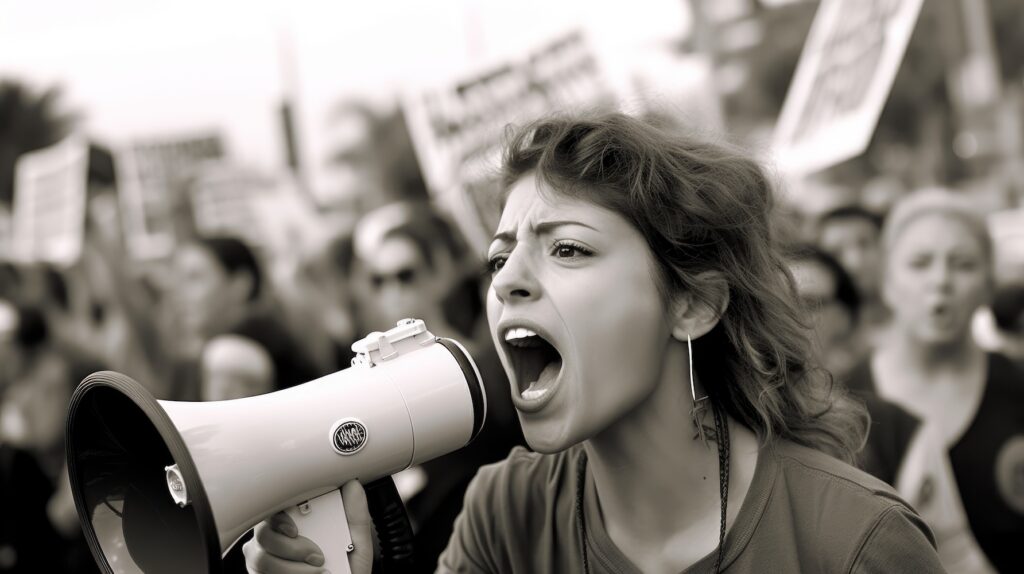Jewish college students feel increasingly unsafe on university campuses, new survey finds
A recent survey of Jewish university students and recent graduates found that Jewish students feel increasingly unsafe on America’s college campuses and are being both verbally and physically…

A recent survey of Jewish university students and recent graduates found that Jewish students feel increasingly unsafe on America’s college campuses and are being both verbally and physically harassed as never before.
The survey of 1,171 Jewish college students and recent grads by Alums for Campus Fairness, a national advocacy group for Jewish students, found that 44% of Jewish college students said they either never or rarely feel safe identifying as Jewish at school, an increase from 21% in the group’s 2021 survey.
Additionally, 58% of Jewish students reported that they had been physically threatened because they are Jewish, or knew a fellow Jewish student who had been threatened. And 78% of Jewish students and graduates surveyed said they try to avoid certain locations, events, or situations on campus because they are Jewish.
Altogether, over 80% of Jewish students and recent graduates consider antisemitism a “very serious problem” at institutions of higher learning across America.
Compared to just three years ago, the most recent survey indicates that antisemitism has dramatically risen at universities. “The percentage of respondents who believe antisemitism is a ‘very serious problem’ has surged by 9 points, from 74% to 83%,” noted the 2024 report. “Furthermore, an overwhelming 93% of Jewish students and recent graduates identify antisemitism as a continuing concern.”
Avi D. Gordon, Executive Director of Alums for Campus Fairness, said his group’s survey made it “painfully evident” that both Jewish and pro-Israel college students face increasing hostility. “The high-profile antisemitic incidents and the pervasive climate of fear on many of our nation’s campuses are well known,” he said.
According to the 2024 report, 60% of those surveyed said university faculty had made antisemitic remarks to them personally or to someone they know. As one example, a University of Wisconsin called UW-Madison “a hotbed of antisemitism. Faculty openly cancel class to encourage students to attend pro-Palestinian protests.”
A Jewish student at another university recalled that a professor “went on a rant about how there’s too many Jews in medicine. He also said that terrorism is just what the big army calls the little army, and said Hamas is a group of ‘freedom fighters.’”
Referring to the horrific Oct. 7, 2023 Hamas attack on Israel that claimed more than 1,000 Jewish lives and hundreds of hostages, a student at a university in America’s southwest said, “I lost most of my friends on October 7th. I specifically asked for comfort and they said that it ‘made them uncomfortable to support Israel’ in response. Word for word.”
A student at UCLA noted that many Jewish students “were assaulted and harassed for weeks and weren’t protected by the school response. I’ve heard of people running around with knives for Jewish students or posting pig related artwork to represent Jews. It is insane and rampant.”
And a graduate of a private university in the northwest commented: “I went to a college with a fairly large Jewish population and graduated some years ago. But now there have been incidents at my school and I can see how the climate has changed a lot and has become really unsafe for Jewish students.”
On the positive side, Gordon noted that Jewish solidarity on college campuses is helping to ensure the safety of students. “Students and recent graduates who participated in organized Jewish community events reported feeling significantly safer on campus,” he said. “This underscores the vital importance of community support and should drive us to redouble our efforts to nurture and protect Jewish life on campuses across the country.”
The Alums for Campus Fairness survey of 1,171 Jewish college students and alumni was taken online between May 17 and 28, 2024.



